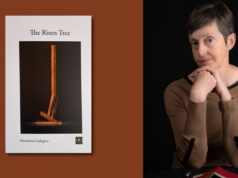
Fred Johnston muses over some recent poetry books
A Farewell to Poetry. Gabriel Fitzmaurice. Currach Books; 379pp; €19.99/£17.99 pb; 19cm; 978-1-78218-909-1.
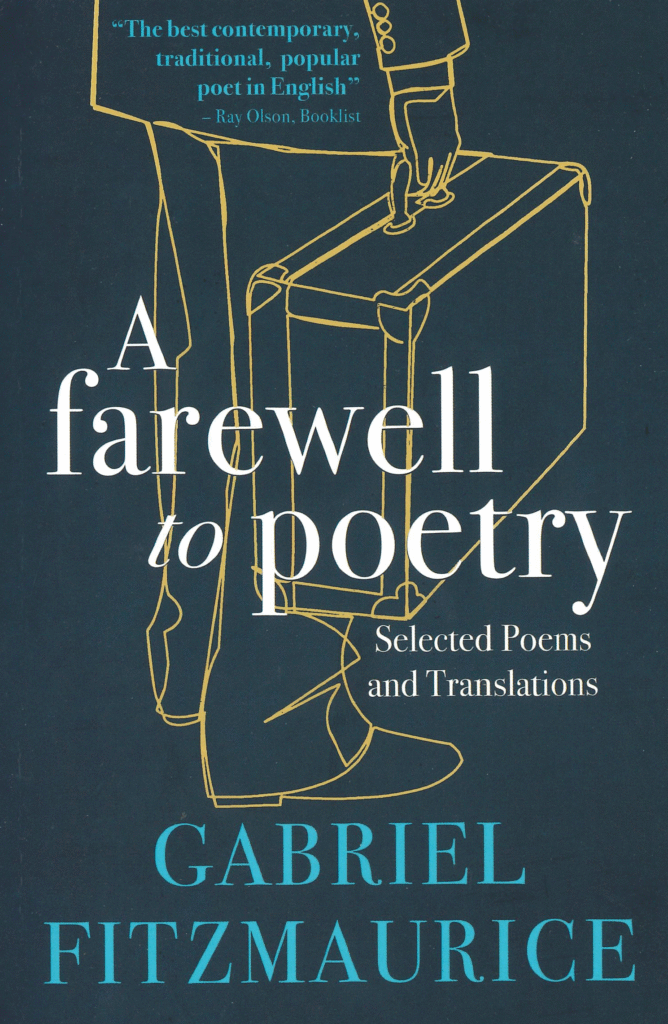
Irish bards and musicians had a habit of composing ‘farewells’. Turlough Carolan gave us ‘Farewell to Music’; Michael Hartnett ‘A Farewell to English’ in 1975. The ‘farewell’ motif seems almost always to be a farewell to a certain period or act of culture, rather than to, or by, an individual. Fitzmaurice, a prolific writer, poet and translator from Irish, takes up the theme. His ‘farewell’ channels Hartnett: the end of a culture, the fading of a way of life, and with it the songs, stories and beliefs of an Ireland more in tune with the themes of fellow Kerryman John B. Keane.
This is a selection from 24 published collections, including translations—into and out of Irish—and previously unpublished poems. Some of the shorter poems tend, regrettably, to amble too casually towards the naïf to do justice to Fitzmaurice’s skill. His translation of Raftery’s ‘Mise Raifteirí an File’ has that—to my mind—controversial couple of lines: ‘Look at me now/My back to the wall’. I have heard it said that, having been refused entry to a pub in Balla, Co. Mayo, Raftery played on its Irish name with the lines: ‘Here I sit/With my arse to Balla’. Did some Victorian tut-tut at this?
Fitzmaurice’s ‘The Deserted Village’ echoes Goldsmith (though some say Goldsmith wrote about an English, not an Irish, village) and is a suitable lament for things passing. The argument that rural Ireland is neglected is to my mind legitimate, but is a ‘folksy’ rural Ireland to be desired? Elsewhere, Fitzmaurice’s love of music surfaces in poems to Johnny Cash, his D-28 Martin guitar, and Kris Kristofferson. He is scathing of Irish poetry culture today, but in the poems of family, local things and people that have vanished, Fitzmaurice is at his most lyrical and, dare one say it, loving. Perhaps he is one of the few poets left who see the universal (as Kavanagh did) in the local. He concludes his introduction with ‘This, I feel, is my final book. The job is done.’
Organic Words: selected prose. Hugh McFadden. Limerick Writers’ Centre Publishing; 455pp; €25/£20/US$30 pb; 23cm; 978-1-9160653-0-7.
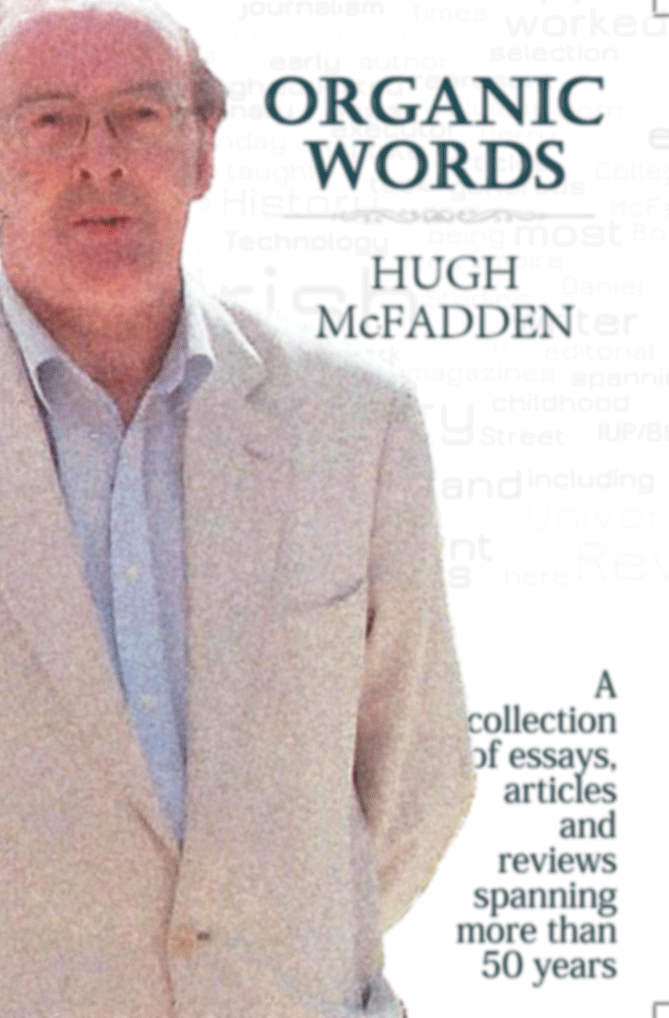
This book is sub-titled ‘A collection of essays, articles and reviews spanning more than 50 years’. There are few journals or papers McFadden hasn’t written for and he’s managed to produce four collections of poetry as well. He still reviews and is executor of the late poet John Jordan’s estate. Like me, he passed through the hallowed vaults of The Irish Press, as so many scribes did.
What comes over in this collection is the erudition and clarity of McFadden’s writing. A journeyman writer who offers his skills to the world will find himself writing on many topics. McFadden is especially good at the politico-literary history of Irish writing at a period when, for many writers, it was pub rules. The desolation of the censorship era and the influence of the ‘set’ that inhabited McDaid’s pub is handled deftly. Though drink crippled, or halted, some fine abilities, spawning romanticised myths about often seedy and self-destructive goings-on, McFadden reminds us that there were world-sized talents supping in Dublin’s pubs: Jordan, Anthony Cronin, Patrick Kavanagh et al. Perhaps we need reminding.
His book reviews outline the development of new writers, new poets and new shifts in literary outlook. One also finds a piece on the history of Dr Steeven’s Hospital, another on Newgrange, plus reviews of new collections by the late Macdara Woods, Matthew Sweeney and others. McFadden’s range is diverse and sweeping. There is a review of John Montague’s memoirs, a fine piece on Robert Greacen and a review of Salmon: a journey in poetry 1981–2007, which signals the debt many younger poets owe to that publishing house.
McFadden is very good on ‘little magazines’ like Envoy and The Bell and their influence at a time when publishing was almost a political act, and excellent on Heaney, Thomas Kinsella and Michael Longley. This wondrous collection is suitable for dipping into; but, reading it all together provides an insight into what a writer actually does, should do and the influences under which he records and criticises. McFadden moves through whole eras of literary and general history, providing a volume that is required reading for anyone interested in how Irish poetry and creative writing arrived at where it is today, while reminding us of the oft-flawed giants upon whose shoulders the edifice rests.
The Death of Poetry. Peadar O’Donoghue. Poetry Bus Press; 64pp; €8 pb; 20cm; 978-0-9576903-7-0.
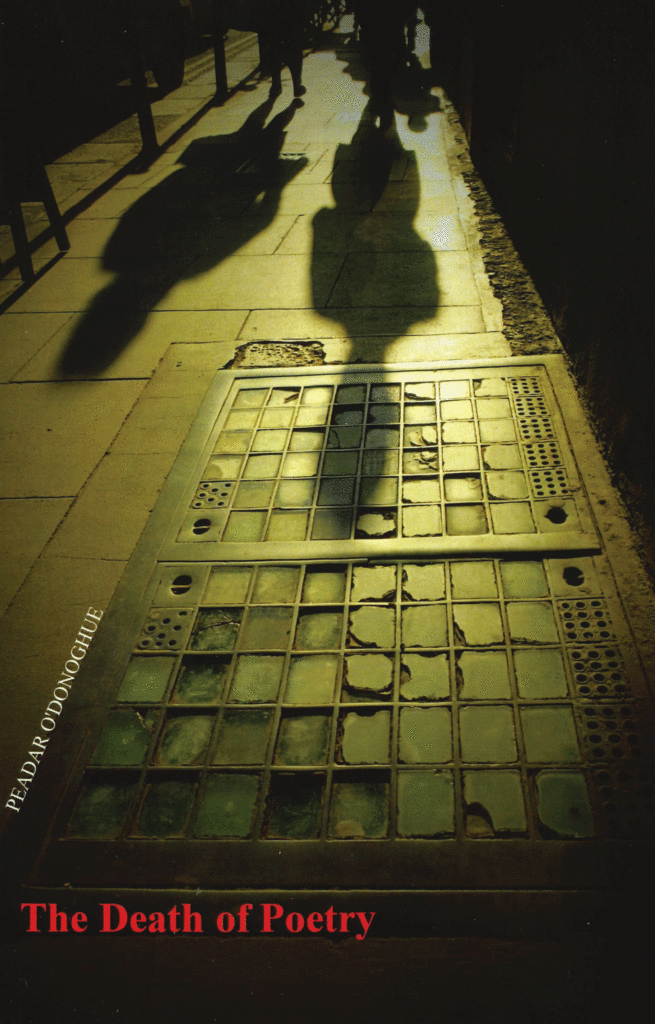
O’Donoghue founded the Poetry Bus. His own poetry has appeared widely. He’s a satirist, and doesn’t care who knows it. Unlike some, he isn’t worried about upsetting apple carts. Nor is he in the least sparkle-eyed at what poetry (or politics) is about: ‘Never trust a hippie, a banker, a poet/though you can count on them,/like a politician, to peddle hope’ (‘Performance Poet II’).
I wouldn’t agree with ‘never trust a hippie’, though I am aware that the word’s original meaning has been lost. O’Donoghue is disarmingly self-aware, thus injecting an honesty into his work that lends a truth to his satire and commentary. Deceptively simple in blank verse, these poems allow for anger and plain-speaking in a way that many poets dilute. Tiny quibble? The last word of the final poem—should it be ‘sober’ and not ‘sobre’, Spanish for over or across?
A Well Spent Smile. Robert Hilton. Self-published; 80pp; €10 pb; 20cm; 978-1-83853-132-4.
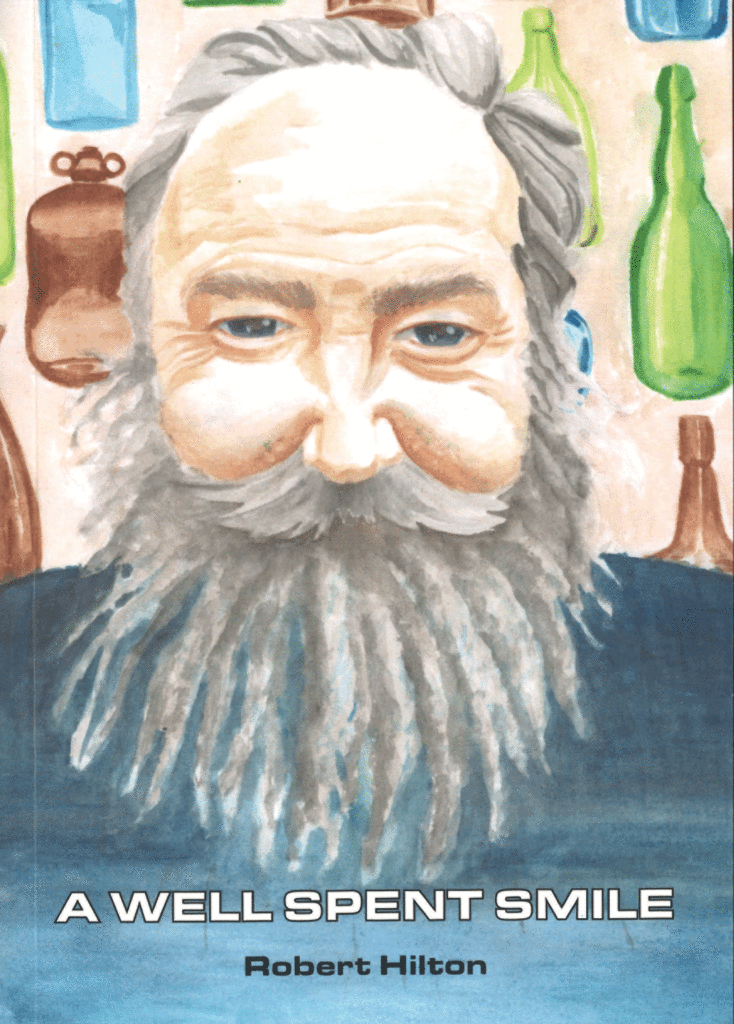
Hilton, born in England in 1940, spent most of his life at sea. Today he captains an Aran Island ferry. It’s in the blood: his father commanded one of the ‘little boats’ that rescued men from Dunkirk. A distant relative was friendly with G.B. Shaw. A composer of sea-ditties, he has collated them for the first time. Anyone interested in sea experiences and their re-telling should detect something of the spirit of the song-writer, ex-submariner Cyril Tawney: ‘To please a lady you could do far worse/Than make a lavish sentimental rhyme/In simple bits of metricated verse,/And read it to her at some tender time’ (‘One Use for Poetry’).
There are darker notes. Hilton received a distress call as the Herald of Free Enterprise turned over at Zeebrugge in March 1987, though he was too far out to assist. He epigraphs his poem ‘Zeebrugge’ with the actual message received. There follows a poem in strict rhyme and metre (sung to the air ‘The Loss of the Ramillies):
‘Then the seas came in on the main car deck, There was hardly time to save your neck. There was scarcely time to think or shout As the cars and the lorries were tossed about.’
Is there anyone else out there currently writing sea-songs and poems? It would be interesting to know.
By Fred Johnston
First published in Books Ireland magazine, Sept/Oct 2019.











